Professor Sir Eric Ash (1928 - 2021) - community remembers former Rector
by Sarah Saxton
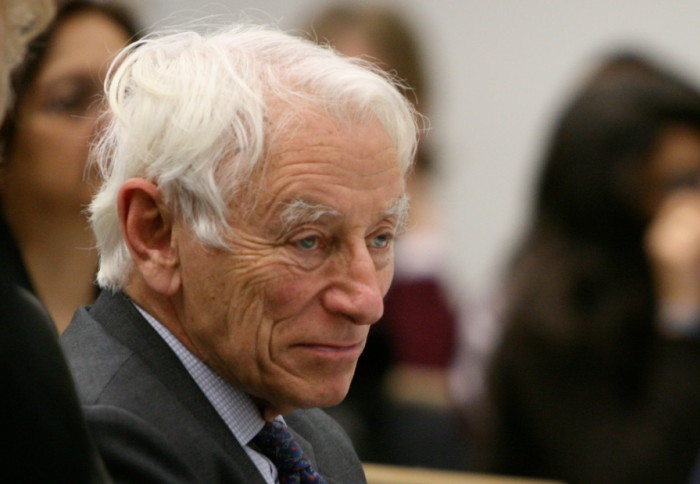
Professor Sir Eric Ash, Imperial Rector between 1985 and 1993, has passed away aged 93.
Sir Eric remained involved in College life into his 90s, regularly attending alumni events, student concerts, and enthusiastically supporting the Ash Music Scholarships with his wife Clare.
He gave so much to Imperial through his steady leadership, mentoring and research. Professor Alice Gast President
Born in Berlin in 1928, Ulrich Albert Asch, Eric – as he came to be known – migrated to Britain with his family in 1938 to escape Nazi Germany.
His lifelong connections with Imperial began when he gained a scholarship to study his electrical engineering BSc and then his PhD, studying under Denis Gabor, the Nobel Prize winning inventor of holography and the flat television tube, who had also fled the Nazis. When asked of Professor Gabor's influencer, speaking in 2000 Sir Eric said: “We’re all children of our parents, and certainly children of the person who supervised our PhDs.”
Professor Alice Gast, President of Imperial College London, said: “Eric was a visionary leader and scientist who will always be remembered for his warmth and optimism. He gave so much to Imperial through his steady leadership, mentoring and research. He remained very active at the College, and I loved spending time with him, whether to celebrate the unveiling of the Ernst Chain Blue Plaque, or to honour others at dinners for the Schrodinger lecture, or the National Academy of Engineering – Royal Academy of Engineering Grand Challenges Summit. He and Clare also lit up when they were surrounded by their wonderful Ash Scholars. Their love of music and our musicians leaves a lasting legacy and meaningful example for philanthropists.”
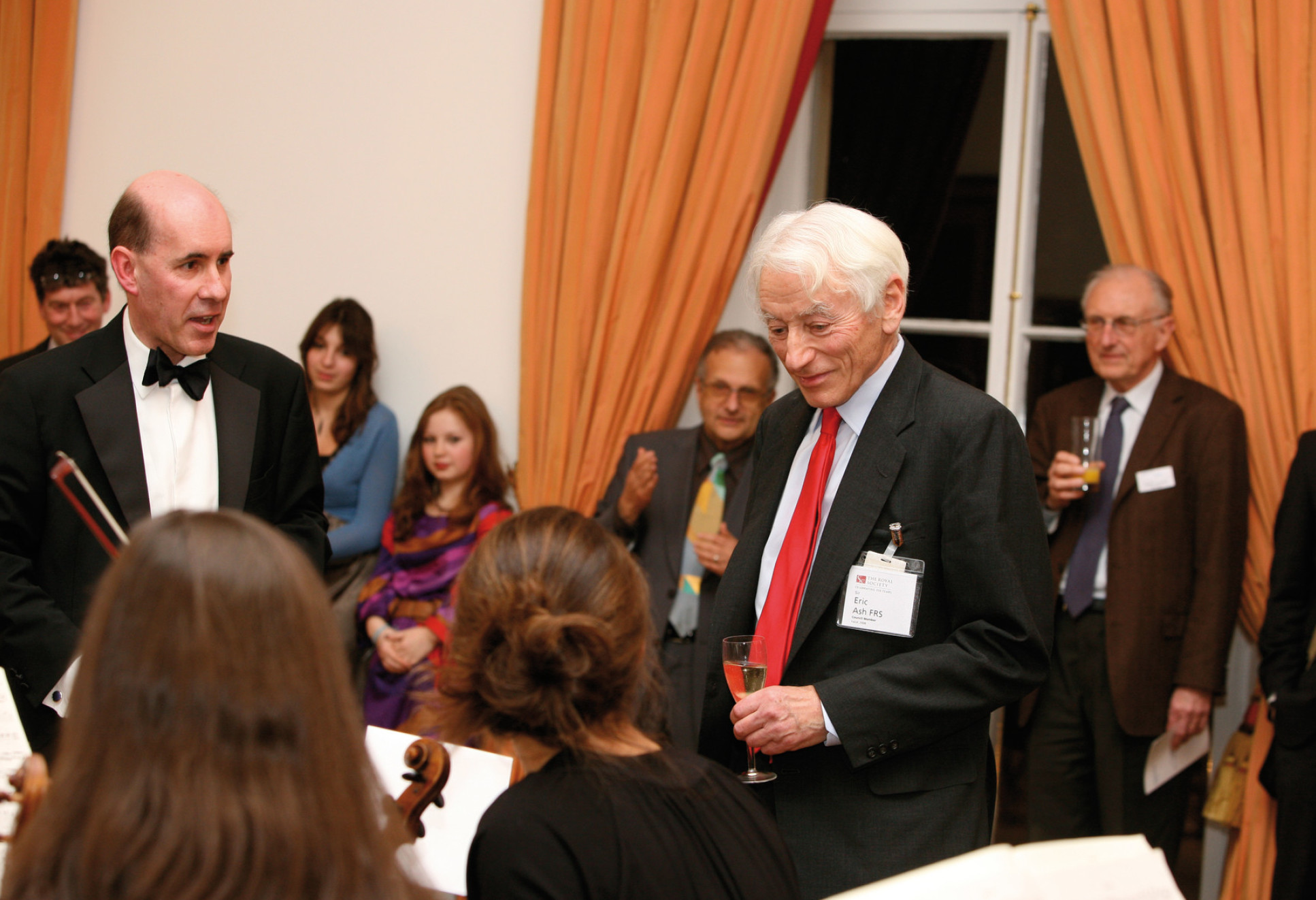
Pioneering research
Sir Eric made significant contributions in electron optics and pioneered research on surface acoustic waves for signal processing. This technology has important uses in mobile phones, televisions and space-borne communications systems.
His research led to new techniques and improvements in the resolution of acoustic microscopes which use ultrahigh-frequency sound waves to probe the internal features of solid materials for defects. They are often used to manufacture electronic components.
Sir Eric was a Research Fellow at Stanford University between 1952 and 1954 before returning to London and eventually becoming Head of the Department of Electrical and Electronic Engineering at University College London in 1980. He was awarded the Faraday Medal of Institution of Electrical Engineers in 1980 and the Royal Medal of the Royal Society in 1986. He became Rector at Imperial in 1985.
One step ahead
As Rector, Sir Eric oversaw the merger of St Mary’s Hospital Medical School with Imperial in 1988. He felt this was a way for Imperial to reposition itself, but also as a way to raise the number of women studying at the College which he believed was very necessary.
Imperial's Faculty of Medicine is now ranked among the world's finest.
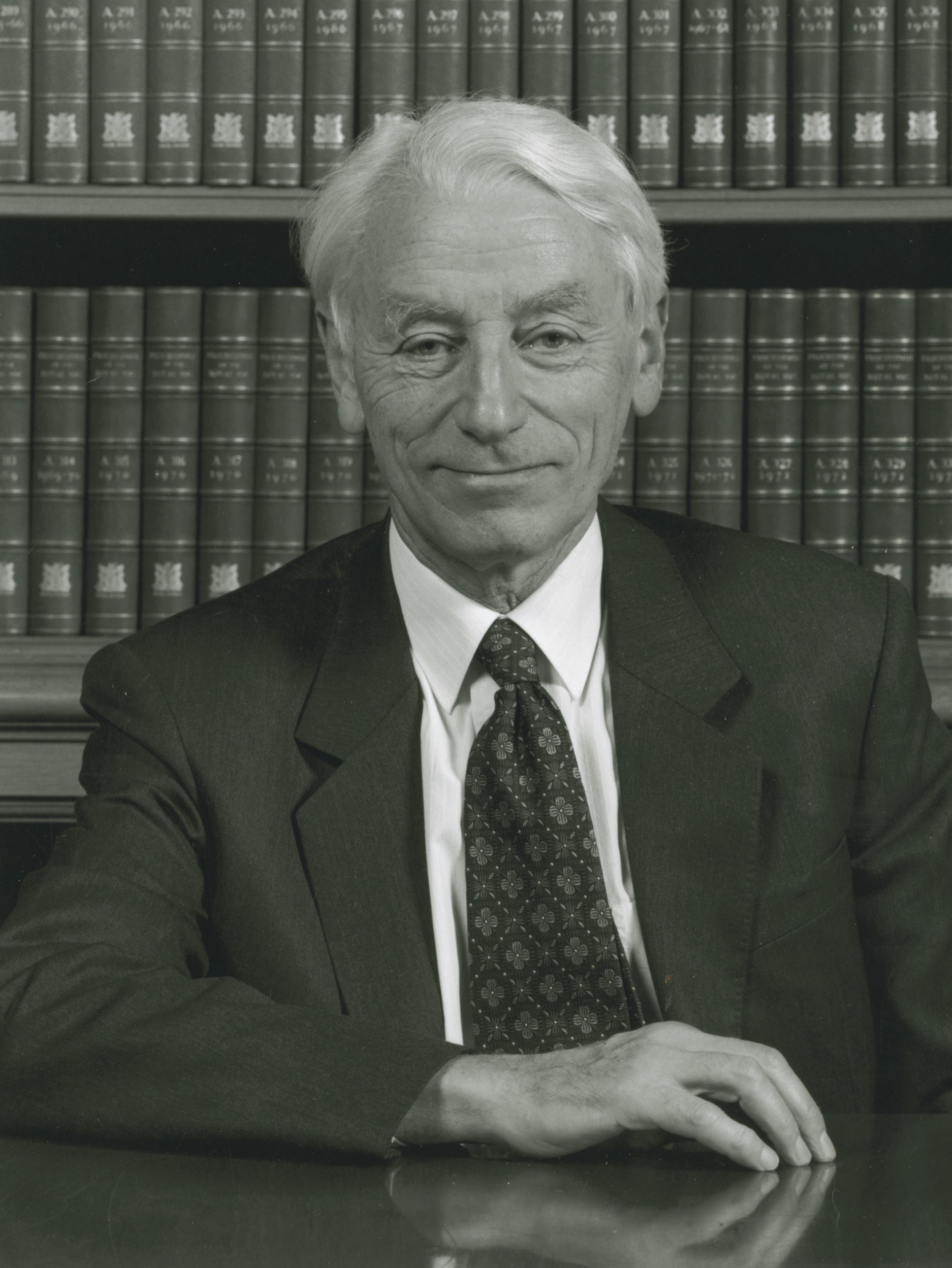
Professor Christof Toumazou who joined Imperial when Sir Eric was Rector explains: “He saw the importance of interdisciplinary way ahead of his time. He merged engineering with medicine - without that we would not be creating devices to save lives at Imperial.”
Sir Eric was also a keen adopter of modern technologies, even when that meant overcoming the objections of colleagues. Speaking about his time as Rector he recalled: “I had the greatest difficulty in persuading many of my colleagues to go over to email probably in around about 1987. I then instituted a system where I would communicate with Heads of Department only by email and that really did bring home the message that this was the way to go.”
Trusted mentor
Former colleagues describe how Sir Eric encouraged and supported them early in their careers and remained a valued mentor over the years.
Professor Christof Toumazou said: “When I was a young lecturer he visited me in Electrical Engineering where I gave a talk on Cochlear implants. After the talk he asked me if I had published the work. I had not and panicked since my early career path relied on publishing. I was honest and said no, knowing that he would be disappointed, and I would be embarrassed. On the contrary. He said that is good news. I asked why.
“He said you have created the world’s first totally implantable Cochlear for born deaf children. Why publish - patent the thing straight away. ‘Patent or perish’ were his words. These words stuck with me ever since and this was indeed the beginning of my entrepreneurial life. He was a great inspiration to research and commercialisation. He will be missed a lot, but his vision lives on.”
Professor Dame Julia Higgins, who witnessed Sir Eric’s strong support for women, said: “I first met Eric not long after he became Rector and was making exploratory visits to all the departments in the College. He came round Chemical Engineering and talked to some of the research groups, including my own. I later got a message from my then Head of Department saying that Eric was encouraging me to apply for Professorship in the department. This was typical of Eric’s very strong support for women in science, engineering and technology, which he once told me arose from the fact that he had five daughters! Certainly from that time on I found him a great mentor and advocate in my career, support which continued long after he left the College in 1993."
Fond memories
Proessor Dame Julia Higgins continued: “Some of my most recent memories of him are from functions at the Institute of Physics while I was its President. When Rector, Eric was notorious for using a bicycle for transport round London and he still cycled (in full evening dress) to the Institute of Physics Annual Awards dinner in 2018. Over the years Eric became a good friend and I shall miss seeing him very much indeed.”
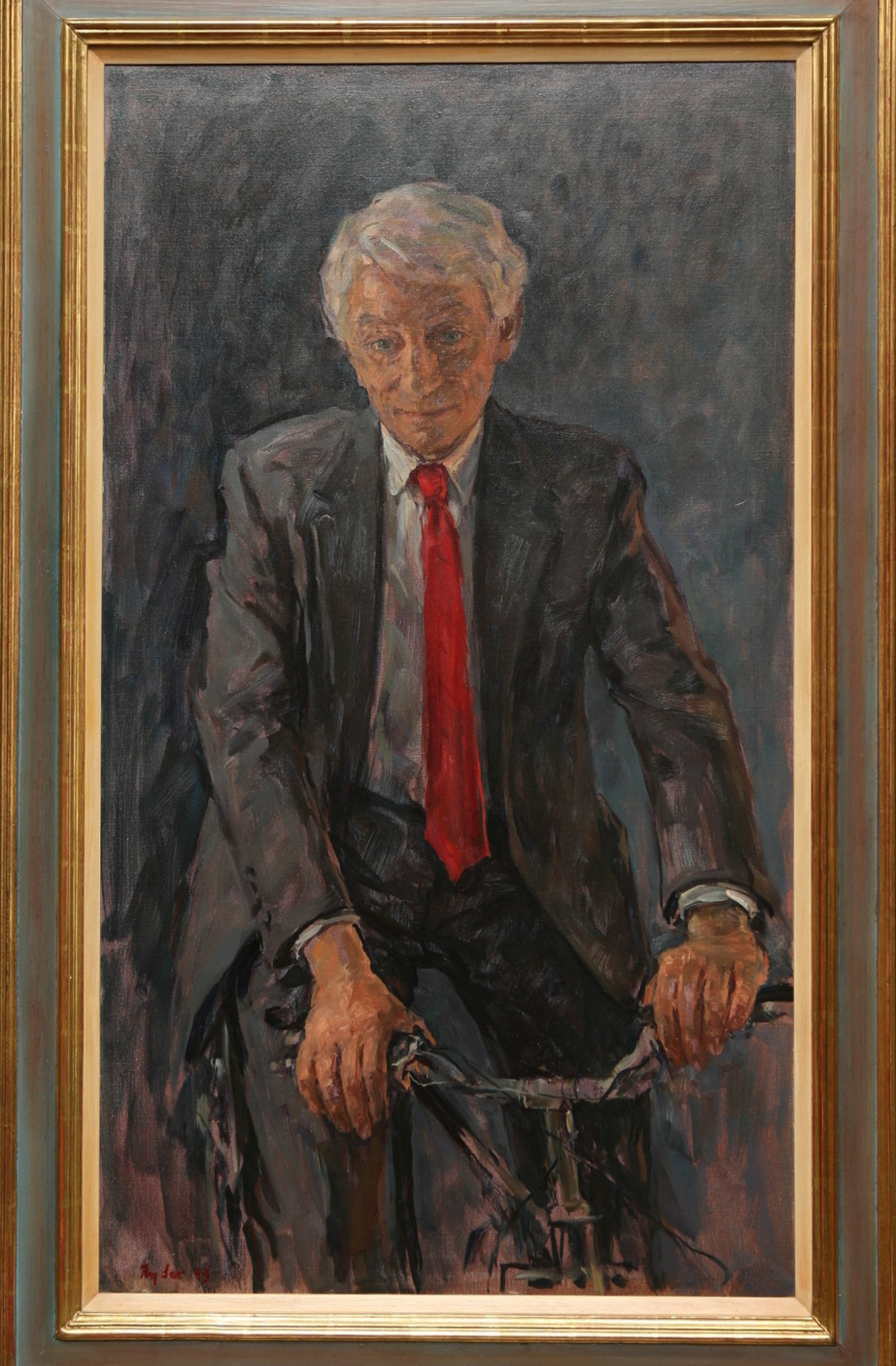
Professor Eric Yeatman, Sir Eric's only PhD student during his time as Rector of the College saw him regularly until last year. He said "Often we would meet for lunch at the Royal Society in latter years, which had become a kind of home away from home for him. It became increasingly impressive as he neared, and then passed, the age of 90 that he would turn up on his bicycle, having cycled down from his home in Islington.
"As his only student, I would regularly be called upon to fill an empty seat at one of his regular “bistro” dinners at 170 Queen’s Gate, when a guest had cancelled at the last moment. A feature of these dinners, his wife Clare’s innovation, was that after the main course a new seating plan would emerge and we would all move and converse with a new set of people. I’m sure there are many people associated with the College who met each other on one of these very entertaining occasions."
Jag Mohan Puri (Mech Eng 1958), founding President of the Imperial College Alumni Association of North India, also recalls the warmth of Sir Eric and his wife Clare: "We met in 1988 on his first visit to Calcutta when they accompanied us to an Indian wedding and over the next 34 years we met regularly in London and in India. I shall always remember his great sense of humour, the warmth of his friendship, his love for the theatre, good food, conversation and their beautiful Christmas cards."
Not a quiet retirement
After retiring from Imperial in 1993, Sir Eric worked on educational technology as an emeritus professor at UCL. He did consulting work for various companies, sitting on the board of British Telecom as a non-executive director from 1987 to 1993.
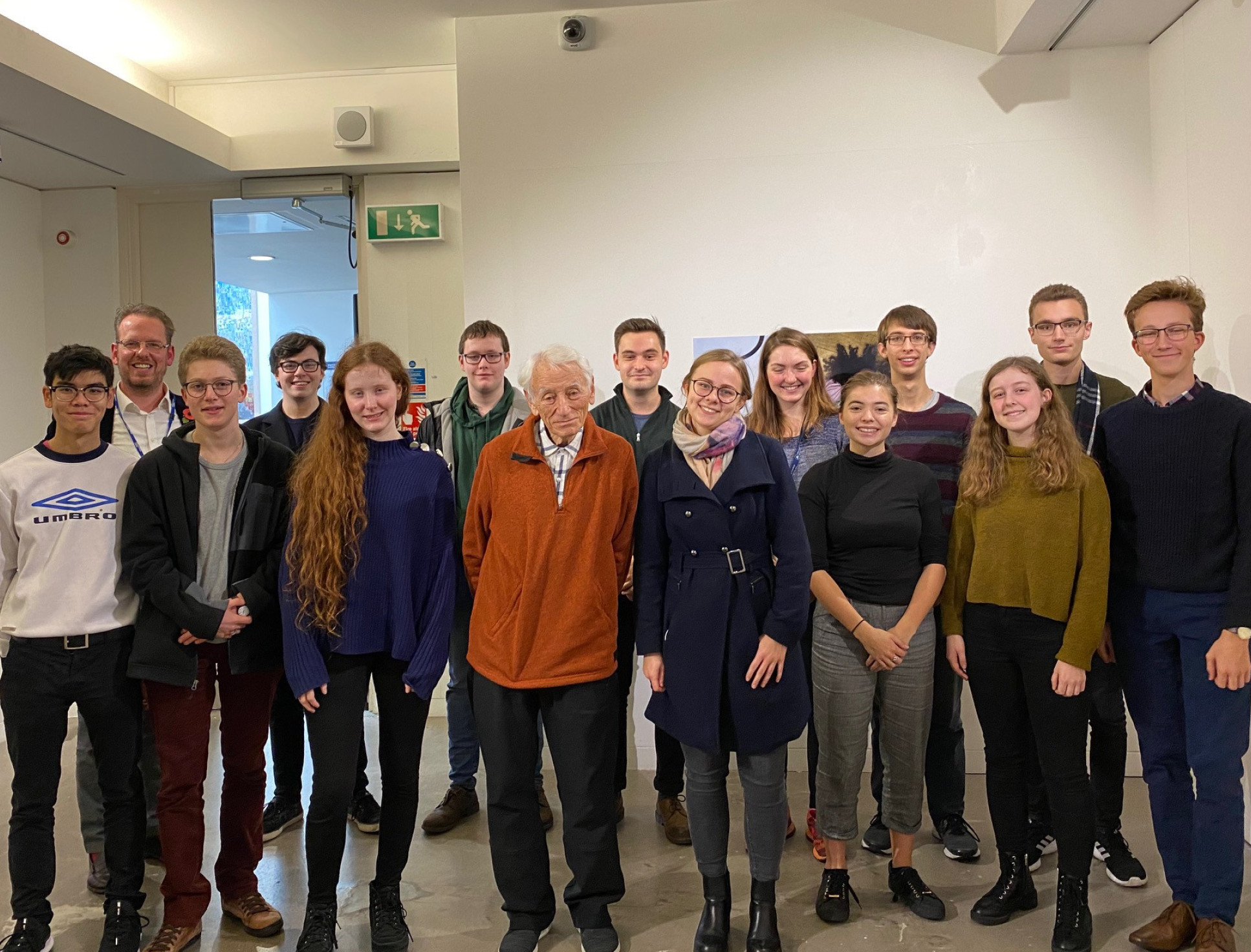
A passionate violinist and appreciator of music, Sir Eric continued to attend concerts at Imperial, offering support and advice to students, for decades after his retirement.
He also supported and attended many alumni events. Miranda Bellchambers (Mech Eng 1986) President, Imperial College Club of Germany Alumni recalls: "It was with great joy that Eric joined us for the Imperial College Club of Germany Alumni meeting in June 2019 at Queen’s Gate. Even at the ripe old age of 91, he was enthralled at our gathering and emphatically urged us to continue researching for new environmental ways of enriching our planet. It was only having read his vita beneath his painting in Queen’s Gate that I realised he had emigrated from Berlin in 1938 in the same way my mother had escaped from Vienna in 1938 and that this was also a bond that bound us together; a magical moment.”
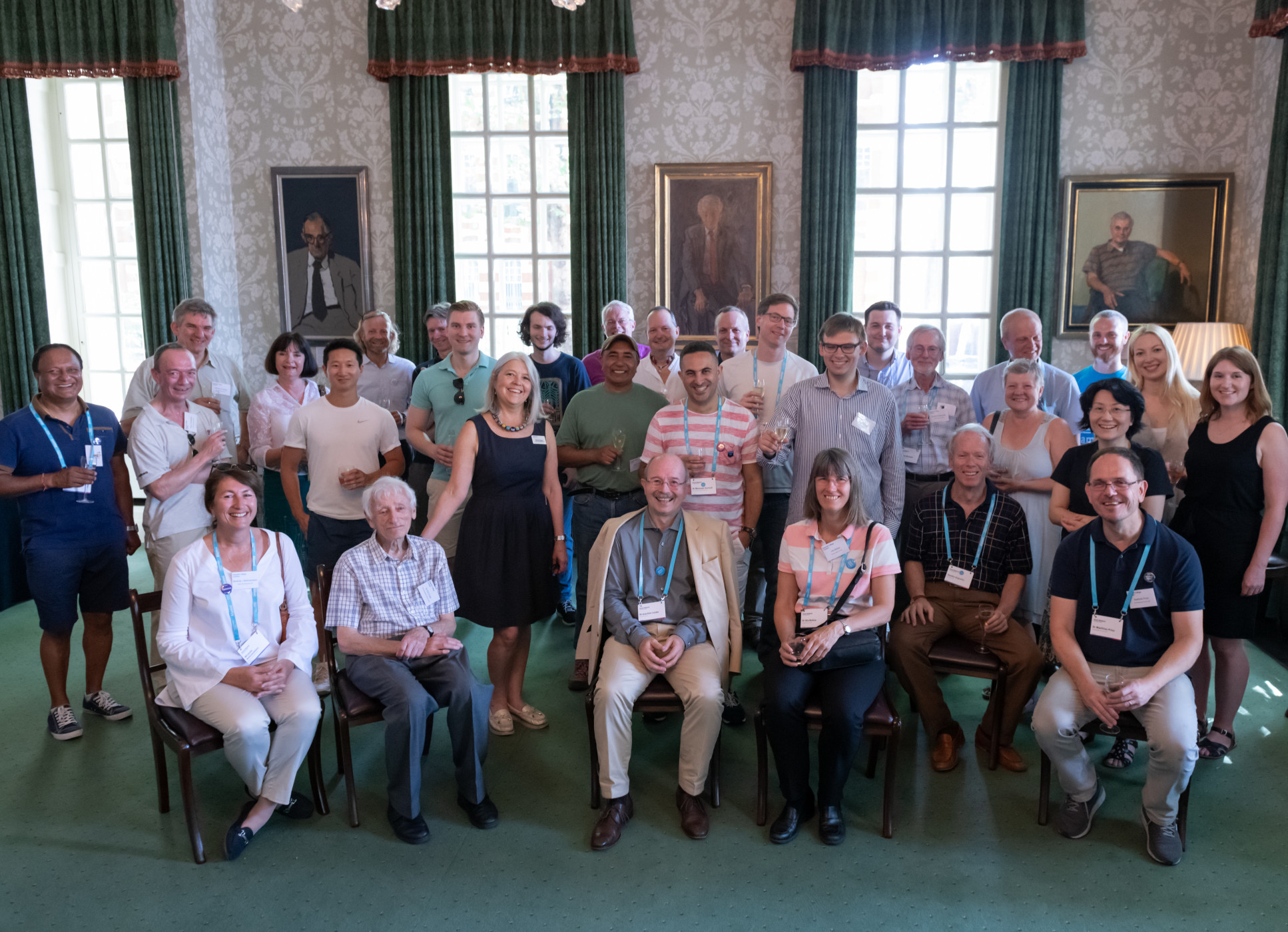
He also chaired the BBC’s Science Advisory Committee and was a trustee of the Royal Institution and the Science Museum, as well as serving as a member of the Advisory Council of the Campaign for Science and Engineering. He was CEO of the Student Loans Company (1994-96), remaining a non-executive director of the company until 2000.
He was elected a Fellow of the Royal Society in 1977, serving as treasurer and vice-president of the Society from 1997 to 2002.
Service of thanksgiving and memorial concert
Sir Eric is survived by Clare, his wife of 67 years, five daughters and 11 grandchildren. A service of thanksgiving will follow his private funeral.
Imperial's Ash Scholars will hold a lunchtime concert in memory of Sir Eric on Thursday 4 November at 1300 in the Read Lecture Theatre.
Article text (excluding photos or graphics) © Imperial College London.
Photos and graphics subject to third party copyright used with permission or © Imperial College London.
Reporter
Sarah Saxton
Communications Division
